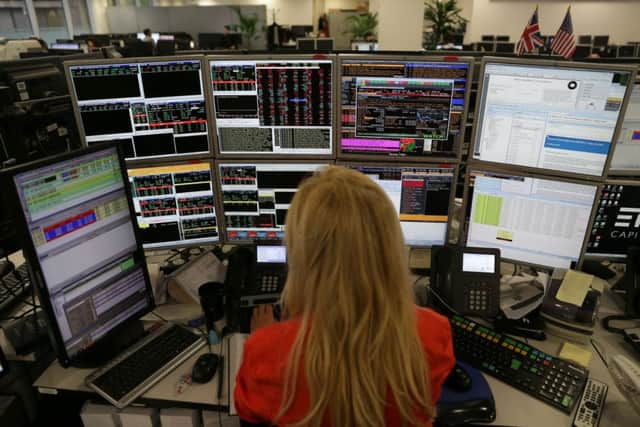Could we be seeing UK equities spring forth?


After a long, cold winter for UK stocks, spring could be just around the corner.
The FTSE All-Share has underperformed other major developed markets so far in 2018, extending a pattern that has been in place since the June 2016 vote to leave the European Union. In fact, the UK stock market has returned much less than other global equities going back to 2011.
Advertisement
Hide AdAdvertisement
Hide AdThis long winter for British stocks was due to a number of factors: the UK’s high exposure to sectors such as banking, oil and mining, which have experienced periods of challenging trading; a relative lack of exposure to higher-growth areas such as technology; and more latterly concerns about the potential for Brexit to affect the UK economy.
While the risks of a bad Brexit and a global downturn driven by rumblings of a trade war between the US and China could derail UK equities, we believe they are an attractive investment on a number of metrics. Current prices imply that investors expect a particularly negative Brexit scenario, so we think UK shares could offer fundamental value and an opportunity in all but the most pessimistic of deal outcomes.
On the day of the EU referendum, 23 June 2016, the closing price of the FTSE 100 was 15.8 times the expected earnings for the index over the next year (a “forward price/earnings” or “PE” of 15.8), compared with the S&P 500’s forward PE of 16.8.
Since then, despite good growth in the FTSE 100’s earnings, its forward PE has fallen to 14. The S&P 500’s forward PE has meanwhile been fairly steady, and recently it was at 16.4, especially as technology giants like Amazon have prospered. This has widened the discount that UK shares trade on to 15 per cent.
Another good valuation measure is what is called projected free cash flow yield, which takes the amount of cash flow a business produces for its shareholders and divides it by the value of its shares.
On this measure, the FTSE 100 has also become more attractive — rising from 4.8 per cent at the time of the referendum to 6.1 per cent today. The S&P 500’s free cash flow yield was 5.1 per cent at the time of the referendum, but it is now 5.3 per cent – 13 per cent lower than the FTSE 100.
Even if we adjust for the S&P 500’s skew toward faster-growth and higher-valued technology shares, the FTSE 100 still looks relatively cheap.
And this is true across sectors: in aerospace and defence, UK-listed BAE Systems trades on a forward PE of 14.8 versus US peer Lockheed Martin on 19, and British energy giant Royal Dutch Shell is on 14.5 compared with 17 for American rival ExxonMobil.
Advertisement
Hide AdAdvertisement
Hide AdThe UK was already less expensive on some measures prior to the referendum, and has now become even cheaper to reflect uncertainty over Brexit. Overseas investors may also be put off by the prospect of a hard-left UK government with Labour leader Jeremy Corbyn climbing in the polls.
If the UK exits the EU with no free-trade deal and there is a hit to trade and to economic growth overall, we think sterling would fall significantly. The FTSE 100 derives approximately 76 per cent of its revenue (according to estimates by FTSE Russell) from outside the UK, so depreciation of sterling would boost the value of these foreign earnings when they are converted to sterling. This would, therefore, push up their sterling share prices.
The FTSE 100 looks cheap — but it is only attractive if we can be fairly sure its long-term investment returns will be good.
Our research suggests that the pound is significantly undervalued versus other currencies, and we expect that over the long term it will normalise, which should boost long-term returns to global investors from sterling-denominated equities, although in the shorter term the currency could fall significantly, as we discussed above. So it’s probably wise for any investors looking to buy UK stocks to ensure they are buying for the better part of a decade, rather than as a short-term punt.
The FTSE 100 should also deliver decent long-term earnings growth. Significant weightings to energy, mining and consumer staples give it the best exposure among Western markets to higher growth regions of the world, chiefly Asian emerging markets.
Even though the domestic economic outlook is currently uncertain, we continue to see UK equities, and in particular the more outward-looking FTSE 100 index, as a reasonably attractive investment.
Sanjiv Tumkur is head of equity research at wealth manager Rathbones